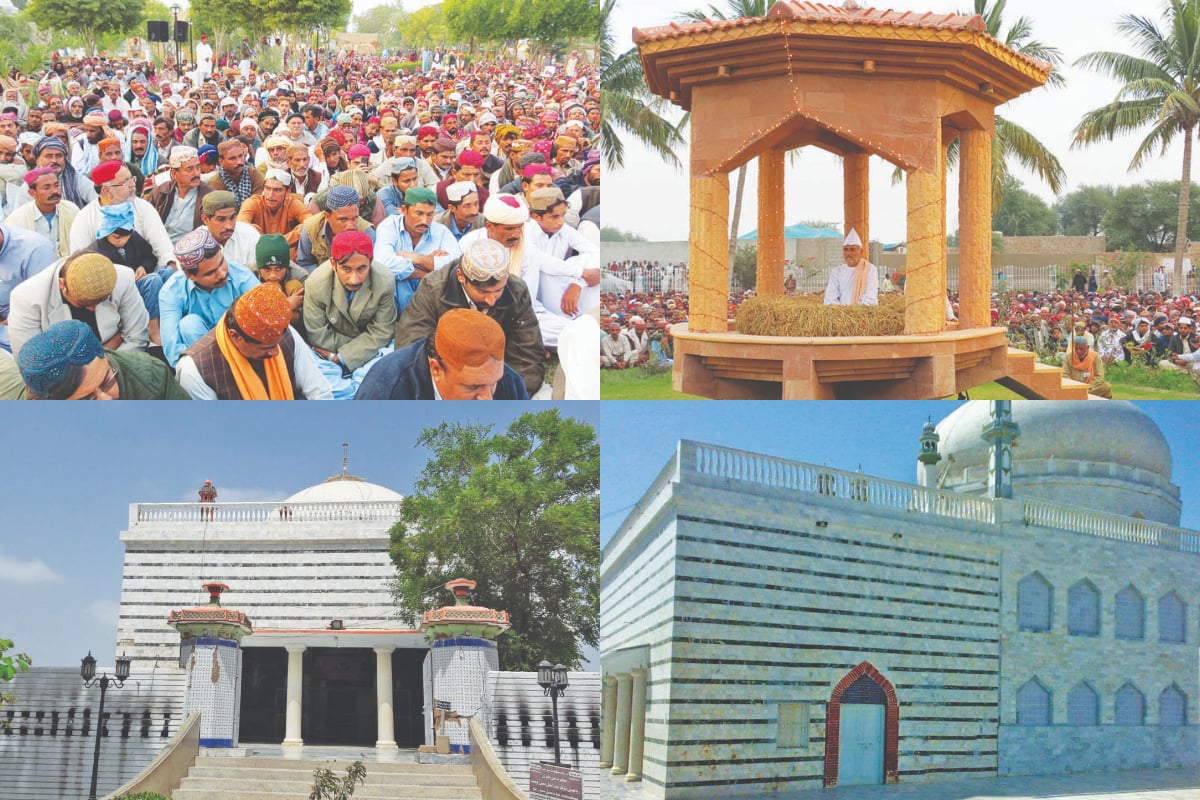Synopsis
The saint was the first land reformer of the sub-continent

Sujawal: Every year, scores of devotees converge in Jhok Sharif, the historical town of district Sujawal, to participate in the three-day annual urs of Sufi, Shah Inayat Shaheed, a celebrated saint, as well as the pioneer of revolution in Sindh. Sufi Shah Inayat is known and venerated for his movement against feudalism and monarchy, during the 17th century. The eminent revolutionary came up with the slogan ‘Jeko khere so khahe’, which means, the one who cultivates the land has the prior right to have the fruits.
Despite flooding in the district, a considerably large number of disciples were likely to attend the annual urs and other centuries-old rituals. Nabi Bux Chang of Badin expressing his reverence said, “I will surpass all impediments to appear before the Shah of Jhoke”, adding that Sufi Shah Inayat taught us the norms of living a dignified life.
The shrine’s custodian, Sufi Attaullah Sattari will formally inaugurate the three-day urs celebrations by blowing ‘Sufi Sang’ (a wind-blown musical instrument) and laying down a floral wreath on the saint’s grave. The district administration of Sujawal has announced a holiday on Wednesday, on the eve of his 292nd urs to facilitate those, who wanted to pay tribute to the Sufi saint by visiting his shrine on the first day of urs.
During the early years of the 17th century, when the rights of poor masses were being crushed by influential feudal lords, he was among the first to have set into motion a revolutionary movement against feudalism. He infused encouragement and valour among the subjugated class of the subcontinent through a continent-wide movement against feudalism. Soon he attained the support of the suppressed class, and his movement started gaining recognition across the region. Those whose rights were being squashed backed him openly. In view of historian Dr Mohammad Ali Manjhi, Sufi Shah Inayat was probably the maiden land reformer of the subcontinent, who opposed the usurpation of the rights as well as the properties of people, reeling under the curse of slavery.
On the one hand, he was a warrior who taught people to wage war for their rights. However, on the other hand, he preached the message of peace and harmony throughout his life. When he started gaining influence across the subcontinent, the Mughal ruler of the 17th century, Farrukh Siyyar issued orders to the ruler of northern Sindh Mian Yar Mohammad Kalhoro to arrest Shah Inayat and his followers and produce them before him. Kalhoro along with his forces besieged the settlements where Sufi and his disciples were living. After a month-long siege, when Sufi Shah Inayat had formed a strategy to attack the forces of Kalhoro, they managed to persuade him for talks by sending Shredded Khan Talpur the advisor of Mian Yar Mohammad with the Holy Quran.
When he was going to hold talks with Kalhoro, the forces of Kalhoro arrested him and brought him to Thatta, the capital city during Mughal rule at that time. He was handed to the Mughal emperor who took no time in executing Shah Inayat. On orders of the Mughal ruler, Sufi Shah Inayat was beheaded. Centuries have passed, since his struggle against feudalism and tyranny. His school of thought is followed even today by a large number of people across the subcontinent.
Catch all the Pakistan News, Breaking News Event and Latest News Updates on The BOL News
Download The BOL News App to get the Daily News Update & Live News.












 Read the complete story text.
Read the complete story text. Listen to audio of the story.
Listen to audio of the story.